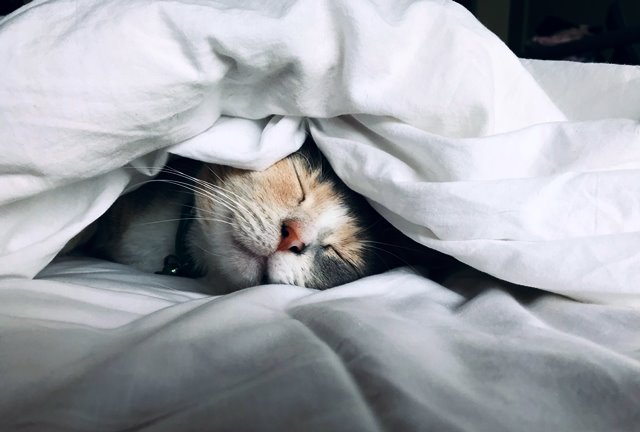We have two cats Oscar and Mojo. They seem to be able to sleep anywhere, anytime. We humans find sleeping more of a challenge, and for some people a lack of good quality sleep can be impair their physical and mental wellbeing.
Stress and anxiety can play havoc with getting enough quality sleep
For many of my stressed and anxious clients, sleep deprivation is a common experience. The reality is, stress and anxiety can play havoc with our sleep.
What’s worse, a lack of good, quality sleep creates a vicious cycle because, it puts our body and mind under even more stress and anxiety.
A significant impact on our well-being
Ongoing sleep deprivation can have a significant impact on our well-being and overall physical health, particularly the effectiveness of our immune system.
Also, when we’re deprived of good quality sleep, we’re more prone to overreact and respond irrationally which, in and of itself, is stress inducing. We’re also, more likely to feel tired, lethargic and miserable.
It’s not only your body that needs quality sleep, your mind does too. Sleep is vital to your well-being mentally as well as physically. For many people anxiety is a prime cause of difficulty in falling sleep, staying asleep and waking unrefreshed.
Flipping the coin, some of the benefits of achieving good, quality sleep are: we look and feel better, and we have greater emotional well-being i.e. less stress and anxiety.
So if you are suffering from lack of sleep you need to address this as a priority.
How much sleep do you need?
Most experts recommend that the majority of adults need 8 to 8.5 hours of sleep every night to stay healthy. However, sleep research also tells us that the quality of our sleep is actually more important than the quantity. The three elements of good quality sleep are:
- Duration: The length of sleep should be sufficient for the sleeper to be rested and alert the following day.
- Continuity: Sleep periods should be seamless without fragmentation.
- Depth: Sleep should be deep enough to be restorative.
So how do you achieve good quality sleep?
Ways to improve the quality and quantity of your sleep
There are many approaches to enhancing our sleep. I‘ve put together a guide for my clients that includes the most commonly recommended solutions such as:
- Enhance your sleeping environment to promote a better and a more restful night’s sleep.
- Avoid electronic devices for at least an hour before bed.
- If you are awakened in the night by some concern, write it down to help you ‘park’ it and let them fall back to sleep.
Some additional effective solutions
In addition to the “top ten sleep solutions” here are three effective solutions I use in my coaching practice, to help my anxious, stressed, and sleep deprived clients. Perhaps these are new to you, and so haven’t tried them yet:
- Breathing techniques are the simplest way of relaxing the body. There are loads of them. The two I recommend my clients practice are the 7/11 and 4-7-8 techniques, You can use these anytime you’re feeling stressed or anxious and more importantly before going to bed, or if you wake up in the night.
- Manage your thoughts. How you think and talk about things affects your feelings and behaviours, including sleep. Have you ever noticed that when you put your head on the pillow, that all of a sudden all the things you’re worrying or ruminating about, come to the forefront of your mind? So, in order to get good sleep we must combat this cognitive hyperactivity. There are lots of techniques that when practiced can help you do this and reduce the anxious thoughts that keep you awake at night.
- Hypnosis and self-hypnosis. I’m a clinical hypnotherapist, and I use hypnosis to help my clients to relax, release anxious thoughts and achieve a good night’s sleep. I also teach my clients self-hypnosis so that they have a powerful effective self-help tool to help them to sleep better. I run regular, 1 day ‘how-to’ self-hypnosis workshops, and if you’re interested in learning how to use this great self-development tool to change your life, please get in touch (see below for my contact details) and I’ll let you know when the next workshop is being run.
So, you can’t sleep, what are going to do?
Your sleep is not an optional extra. It is a key to better health, increased vitality, resilience, and a more creative life. If you need to improve your sleep give me a call and let’s explore how I can help. You can reach me on 021 056 8389 or via email tony@tycoaching.nz, or simply use the Book Now button below.
Wishing you a restful weekend.
Tony
REMEMBER – “When you change your mind you change your life.”
Tony helps people of all ages live their lives free of unnecessary stress, anxiety and depression, and be happier, healthier and more fulfilled.
